During the International Domestic Workers Day celebration of 2023, the IDWF hosted a global webinar, titled “Countdown to congress: Celebrating a Decade of IDWF Strength, Growth, and Resilience.” During which, speakers from 7 regions shared their experiences at the pre-congresses.
LATIN AMERICA
María Mercedes Martínez, Executive Committee member of the National Domestic Workers Federation of Nicaragua (FETRADOMOV) and the Latin American and the Caribbean Domestic Workers Confederation (CONLACTRAHO), shared the highlights of the Americas’ pre-congress:
In preparation for the IDWF’s Congress, affiliates drafted resolutions for the development of strategies aimed at:
- Achieving recognition of domestic workers as central actors in the care economy. This includes investing in training, better wages, and the implementation of public policies that meet the caregiving needs of workers and their families.
- Improving the working and living conditions of migrant domestic workers, which includes several areas: organizing, training, awareness-raising campaigns, and advocacy.
- Combating racism and discrimination against black and indigenous domestic workers, which includes promoting their inclusion in the IDWF’s Executive Committee.
- Promoting equity, inclusion, and protection for LGBTQI+ domestic workers, which includes fostering diversity within IDWF through the creation of a gender secretariat.
During the regional pre-congress, the Latin American affiliates also elected their representatives for next IDWF’s Executive Committee: Juana del Carmen Brítez (UPACP, Argentina) as titular member, and Ruth Díaz de Medina (UNFETRAH-FENAMUTRA, Dominican Republic) as alternate member.
EUROPE
Emanuela Loretone, representative of Ficlams-CGIL, Italy, spoke for the European Federation of Food, Agriculture, and Tourism Trade Unions (EFFAT), and shared the highlights of the Europe’s pre-congress:
Achievements and challenges from 2018 up to date:
- Significant progress in national legislation and policies aimed at improving the working conditions of domestic workers, as a result of campaigns, strategic alliances, and advocacy actions led by affiliates.
- Many domestic workers continue to face exploitation, low wages, precarious working conditions and discrimination.
- Undocumented domestic workers are often exploited and deprived of their basic rights. Regularizing their situation is one of the priorities for the region.
- Strengthening the trade union power of domestic workers in Europe and increasing their membership is one of the main challenges and top priorities for the region.
The European members wish to extend and strengthen the collaboration between IDWF and EFFAT for a period of five years, in order to support and advance the rights of domestic workers in Europe. Coordination and communication within Europe will be strengthened to consolidate its position as an important region with crucial issues at stake on the global stage.
Pia Stalpaert (titular) and Emanuela Loretone (alternate) have been nominated as candidates for the Executive Board of the IDWF.
ASIA
Jec Sernande, General Secretary of the Federation of Asian Domestic Workers Unions in Hong Kong, shared the highlights of the Asia’s pre-congress:
Asia holds the biggest number of domestic workers in the world (41%). However, only one Asian government has ratified C189: the Philippines. Thus, domestic workers in Asia are mostly excluded from labor laws. In the post-pandemic era, due to the economic and political crisis in Asian countries, more and more DWs have been forced to leave their families to work abroad. Most of them have migrated to the Middle East region. They are under the Kafala system, facing extreme abuse and exploitation conditions.
Given that scenario, IDWF’s priorities must be: a) to organize migrant domestic workers in destination countries; b) to advocate for their rights; c) to educate them on labor rights; d) to fight for social welfare; e) to include a MDWs’ representative in the IDWF’s Executive Committee.
The Asia region also stressed the importance of an open exchange of ideas to continue improving the governance of our federation.
“Listening is the key for democracy. If we believe in democracy, then we should ensure freedom of expression and leave no one behind. We want one vision and a strong Federation for the decade to come. Nothing is impossible if we are in solidarity,”
Jec stated.
Asia elected Sonia George (Titular) and Jec Sernade (Alternate) as candidates for the Executive Committee.
AFRICA
Asmaou Bah, IDWF’s Executive Committee member, and President of the African Network of Domestic Workers, shared the highlights of the Africa’s pre-congress:
Africa’s pre-congress brought together domestic workers from 28 African countries. During the event, affiliates worked on IDWF’s resolutions, especially those that haven’t been fully implemented since the last Congress (2018). In this regard, they stressed the following priorities:
- To advocate for the DWs’ right to access quality care services.
- To protect MDWs
- To reinforce DWs’ capacity and skills in different areas such as: democracy and leadership; advocacy and negotiation; and use of technology.
- To fight against violence and harassment at work.
- To promote the ratification and implementation of C189.
- To train DWs on occupational health and safety, to support advocacy actions for governments to adopt policies and standards on OHS, and to develop awareness-raising campaigns.
- To train DWs on climate change, and to create a fund to support DWs impacted by natural disasters and the effects of the pandemic.
- To prioritize diversity within our Federation.
- To develop a monitoring tool to annually assess IDWF’s resolutions.
MENA
Joan Olongada, a Filipino DW heading the recently founded General Domestic Workers Union in Bahrain, shared the highlights of the MENA region’s pre-congress which brought together delegates from Kuwait, Qatar, Bahrain, and Jordan.
Key points of the MENA Pre-congress Declaration:
There are about 6.6 million DWs in the Middle East, and about 5.4 million in the North of Africa, most of them from Asian countries. They face all kinds of labor issues and abuses under the Kafala system:
- No day off, insufficient resting time.
- No proper food and accommodation
- No minimum wage, no salary increasing
- Confiscation of identity documents
- No contract
- No social protection or health insurance
- Lack of freedom of association and expression
- Restricted communications
- No access to justice
- No labor inspections
- Human trafficking (lead by employment agencies)
- Physical, emotional, sexual, and financial abuse
Memorandum of understanding between the IDWF and the Arab Trade Union Confederation: The first significant step to affirm the power of collective action by migrant domestic workers in the MENA region to change the current situation and make that domestic work is recognized as work.
Founding (on June 16) of the General Domestic Workers Union in Bahrain, the first DW’s union in the country and across the Gulf, which hopes to become IDWF’s 89th affiliate soon.
“We ask IDWF to prioritize the MENA region by ensuring equitable representation in its ExCo and extending global solidarity to our cause. Together we are stronger!”
Joan said.
THE CARIBBEAN
Elaine Duncan, President of the Jamaica Household Workers Union (JHWU), shared some key outcomes of the Americas’ pre-congress:
Five delegates from the three Caribbean unions affiliated to IDWF attended the Americas’ pre-congress. They shared their five-year regional report, with the following highlights:
- Four new ratifications of Conventions 189 and 190.
- Membership increased over 1,000 new members since 2018, totaling 7,400 to date.
- A domestic workers section within a larger union in Antigua and Barbuda started the process of becoming an independent organization.
- Reactivation of the Caribbean Domestic Workers Network.
- Development of certification programs, and foundation of a training institute.
- Tripartite social dialogue.
The Caribbean delegates agreed on amendments to four IDWF’s resolutions:
- Nº2: Quality childcare for DWs.
- Nº3: Rights of DWs in a comprehensive system of care.
- Nº8: DWs’ health and safety
- Nº 10: Eradication of GBV.
The Caribbean also drafted two new resolutions with the support of affiliates from Latin America and North America:
- IDWF to create an operational plan for the ExCo that is shared with affiliates and monitored every year
- IDWF to identify and support initiatives for economic empowerment of its members.
Delegates unanimously nominated the following candidates for IDWF ExCo 2023-2028: Elaine Duncan (titular), and Ida Le Blanc (alternate).
NORTH AMERICA
Yaquelin López, ExCo member of the National Alliance of Domestic Workers in the United States, and founder of Women Working Together, shared some updates about the domestic work sector in the US:
- While C189 has not been ratified in the US, affiliates continue fighting for their rights.
- They have succeeded in getting ten states and two cities to issue regulations granting rights to our sector and are now campaigning for a national regulation.
- In the face of the current care crisis, domestic workers must be a key part of the solution.
- This year, President Biden declared April as the month of care workers. This recognition is the result of our struggle. We will continue fighting until caregivers receive fair wages, benefits, and the respect they deserve.


